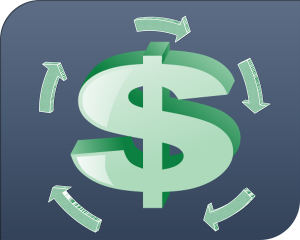Cash Flow vs Income in Business Accounting: What’s the Difference?
 The terms “cash flow” and “income” are often used interchangeably by business owners when referring to the money their business generates. While similar, however, these are two unique terms with their own unique definition and purpose. As a business owner, it’s important that you familiarize yourself with cash flow and income so that you can keep proper financial records. Using these terms incorrectly in your accounting efforts could result in serious headache when tax time rolls around. So, what’s the difference between cash flow and income?
The terms “cash flow” and “income” are often used interchangeably by business owners when referring to the money their business generates. While similar, however, these are two unique terms with their own unique definition and purpose. As a business owner, it’s important that you familiarize yourself with cash flow and income so that you can keep proper financial records. Using these terms incorrectly in your accounting efforts could result in serious headache when tax time rolls around. So, what’s the difference between cash flow and income?
Cash Flow
Cash flow reflects the money coming into your business and the money leaving your business. It’s called “cash flow” because it reveals how cash “flows” through your business. Cash comes into your business by selling products or services to customers. When you make a sale, the customer pays your business, thus creating positive cash flow. However, cash can leave your business when you make payments. Whether these payments are for lease, equipment, payroll, inventory, insurance, etc., they all affect your business’s cash flow.
According to the U.S. Small Business Administration (SBA), low cash reserves is one of the most common reasons startup businesses fail. If a business lacks a positive cash flow, it won’t have the funds on hand to cover potentially critical expenses that are needed for it to operation its operations. This is why it’s important that business owners continue to improve their cash flow.
Income
On the other hand, income is the fixed amount of money that your business earned for a specified period. The key difference between it and cash flow is that only the latter takes into account all your business’s expenses. Under Generally Accepted Accounting Principles (GAAP), income is calculated by subtracting cost of goods sold from your business’s revenue for a specified period. This provides you with your business’s net income for that period.
Generating a higher income is a goal shared by all business owners. Without income, your business’s cash flow will suffer, thus you’ll struggle to cover expenses for your business.
Both income and cash flow are important financial metrics to track when running a business. However, cash flow, in most cases, provides a more transparent look at a business’s overall financial health. Hopefully, this gives you a better understanding of cash flow and income and how these two terms differ.
Have anything else you’d like to add? Let us know in the comments section below!
